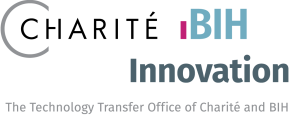A specific point mutation of the signaling protein MyD88 is one of the most common driver mutations found in B-cell lymphomas. A team at the Charité has identified a novel T-cell receptor (TCR) that specifically recognizes this MyD88 L265P mutation. With the novel TCR, they develop an innovative immunotherapy against B-Cell lymphomas and have recently been awarded a grant from the German Federal Ministry of Education and Research (BMBF) for a first-in-human clinical trial. The group of researchers led by PD Dr. med. Antonia Busse, Head of the Molecular Immunotherapy Group and Senior Physician, Department of Hematology, Oncology and Cancer Immunology, Charité Campus CBF, and Prof. Dr. med. Antonio Pezzutto, Senior Professor of Translational Research, has also successfully published the results of the preclinical studies in the Journal for ImmunoTherapy of Cancer.*
For the preclinical characterization of the novel TCR candidate, the project has been funded by SPARK-BIH from 2020-2022. SPARK-BIH is a mentoring program of Charité BIH Innovation (CBI), originated at Stanford, that supports early-stage academic inventions with education, project management, mentorship and milestone-based funding. Furthermore, the Patents & Licenses team of CBI continuously supports the project, such as with the patent application and a WIPANO grant.
As a precision immunotherapy, it is being developed primarily for the treatment of MyD88 L265P mutated highly malignant B-cell lymphomas, such as diffuse large B-cell lymphoma (DLBCL) and primary CNS lymphoma (PCNSL). Both patient populations have a poor prognosis, and only limited therapies are available especially for the elderly and patients with severe comorbidities. With the goal to bring the innovative immunotherapy into clinical use, the BMBF is supporting the project with around 3.5 Mio € until June 2025. This funding period is presumably followed by a second one with around 1.0 Mio € until end of 2026. Furthermore, the current GMP vector production for the clinical trial is supported by the Else Kröner-Fresenius-Stiftung (EKFS) with a funding of around 617,000 €.
Besides the presence of the MyD88 L265P mutation, the expression of the human HLA variant B7 on the lymphoma cells is an essential prerequisite for this immunotherapy. Yet due to its potentially higher efficacy compared to standard therapies, the novel TCR T-cell therapy has the potential to be a “niche buster.” The aim is to achieve long-term remission, or cure with this tumor-specific therapy while maintaining a favorable side effect profile. Unlike CAR T-cell therapy, TCR T-cell therapy can also address intracellularly expressed antigens and, most importantly, targeted neoantigens. This means TCR T-cell therapy against the oncogenic MyD88 L265P mutation may enable targeted, personalized tumor-specific therapy for lymphoma patients, for which current treatment options are very limited.
*Original publication: Özcan Çınar, Bernadette Brzezicha, Corinna Grunert, Peter Michael Kloetzel, Christin Beier, Caroline Anna Peuker, Ulrich Keller, Antonio Pezzutto #, Antonia Busse #, “High-affinity T-cell receptor specific for MyD88 L265P mutation for adoptive T-cell therapy of B-cell malignancies”; Journal for ImmunoTherapy of Cancer. 2021 Jul;9(7):e002410. doi: 10.1136/jitc-2021-002410.


